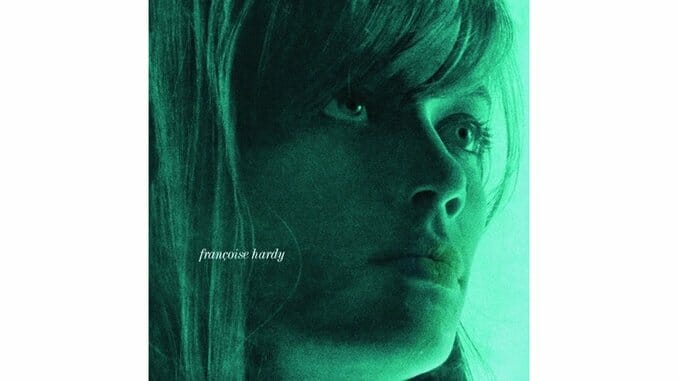Françoise Hardy: Light in the Attic Reissues
Tous le garçons et les filles/Le premier bonheur du jour/Mon amie la rose/L’Amitié/La maison oú j’ai grandi

Considering the desire by reissue labels to help the average vinyl enthusiast be able to finally afford those gems from the past that would otherwise cost them a pair of appendages, it’s a wonder it took this long for someone to get around to bring the work of Françoise Hardy back into print.
Of all the female French pop stars that blossomed in the early-to-mid-’60s, Hardy had the largest crossover appeal. Some of that had to do with her earthy beauty that fit well alongside the rail-thin fashion icons of the day and helped secure her the adoration of pop icons like Mick Jagger and Bob Dylan. But what really translated across all borders was her voice. Her singing was as alluring as her contemporaries’ while standing apart from France Gall’s girly chirp and Sylvie Vartan’s kittenish purr. Hardy’s voice was melancholic and direct, evoking earth tones and autumn amid the primary-color pop art of the era. She didn’t have great range, but she used it so very well, evoking joy, sorrow and longing with only the slightest changes of inflection.
Combined with the understated arrangements that bore the influence of the chansons of her home country and the pop and R&B sounds arriving from across the Channel and the Atlantic, her voice and those looks turned Hardy into an international sensation right out of the gate. Her 1962 debut single “Tous le garçons et les filles” (“All The Boys & Girls”) was a huge hit throughout Europe, and has been covered dozens of times by everyone from Eurythmics to The Dresden Dolls. And it has kept modern audiences interested in her music as a pure representation of the ‘60s pop aesthetic, as well as a reminder of how the emotion of a song can still connect even when it’s sung in a foreign language.
All of that is present in these albums, the first five full-length recordings Hardy released in her native France that are being lovingly reissued by Light In The Attic. What these LPs also offer is a chance to track her rapid evolution as an artist, and to see how the forces of the pop marketplace came quickly to bear on her work.
It’s important to note up front that when Hardy recorded her first single and subsequent album Tous le garçons et les filles, she was not yet 18 years old. So while she co-wrote (with Roger Samyn) the music for all the original songs on the album, it reveals a musician that had yet to fully absorb her influences and make them her own. The spirited “Il est parti un jour” and “J’suis d’accord” are gentle carbon copies of Bill Haley and Buddy Holly singles, and the entire thing is driven by the crisp, round tones of what sounds like a sweetly reverbed hollow body electric guitar. The rather innocent feel to the music befits Hardy’s voice. Even as she bemoans her loneliness on the title track (“I walk the streets alone/the lost soul…I am alone/because nobody loves me”) and shakes her head at her fellow young people living like there’s no tomorrow in “Le temps de l’amour” (the song that Sam and Suzy dance to in Moonrise Kingdom), it’s with an almost flat affect that can be read as indifference or resignation depending on your mood that day.
-

-

-

-

-

-

-

-

-

-

-

-

-

-

-

-

-

-

-

-

-

-

-

-

-

-

-

-

-

-

-

-

-

-

-

-

-

-

-

-








































